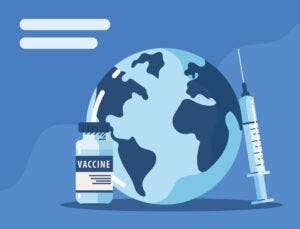May 15, 2023

Medicines Patent Pool (MPP) says its collaboration with the WHO helps to empower lower- and middle-income countries (LMIC) to manufacture vaccines and therapies locally.
In 2021 the mRNA technology platform was founded by the World Health Organization (WHO) and Medicines Patent Pool (MPP) – a global health advocacy group funded by the multi-government initiative Unitaid.
The collaboration, announced in response to the inequality in access to healthcare highlighted by the COVID-19 pandemic, aims to increase health security in LMICs, helping them prepare for future pandemic preparedness by empowering them with localized and sustainable vaccine capacity.

Image: DepositPhotos/
djv
“There are billions of people in lower- and middle-income countries that do not have access to essential medicines,” Ike James, head of Technology Transfer at MPP told BioProcess Insider at BPI Europe 2023 in Amsterdam last week. “This project is quite unique; traditionally a technology transfer is a bilateral process.”
The platform has been developed at South African biologics vaccine company Afrigen, and the technology platform, through an open-source model, has been transferred to 15 manufacturing partners to produce COVID-19 vaccines in LMICs.
The partners can also improve and shape the technology, said James, and these improvements are subsequently shared with the other partners, creating a collaborative and multilateral technology transfer platform.
The platform has the potential to be used for other disease targets for LMICs, James added. “This is really quite powerful because a lot of relevant disease targets in LMIC’s are not necessarily disease targets in high income countries.” This will empower these regions to manufacture therapies localized and relevant to them.
However, James outlined the challenges when designing the platform. “Establishing vaccine manufacturing capability in regions like this has many challenges. You need an ecosystem that supports capacity and capability which includes government support.”
When discussing the future of equitable healthcare, without strong ecosystems, comprising of strong research capabilities, resources, and human capital development, “what we are doing will fall in isolation,” said James. “Maybe this will be used as a blueprint for other technology platforms.”
About the Author
You May Also Like



